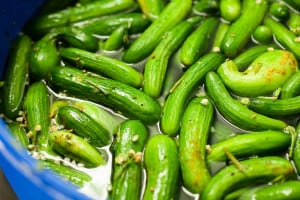 At Hazon, we believe that having more information about a subject can lead to meaningful internal contemplation which in turn empowers us to make choices that are beneficial to our bodies, our communities, and our earth.
At Hazon, we believe that having more information about a subject can lead to meaningful internal contemplation which in turn empowers us to make choices that are beneficial to our bodies, our communities, and our earth.
In a world where advertising and an (over)abundance of social media sharing add to a general confusion about how and why we make the choices we do concerning what we eat–and in a world where there is genuine confusion and challenges even when you have lots of accurate information–we have put together these pages to share information and spark discussions about how to make food choices that embody our values.
Why does Hazon focus on the intersection of food and sustainability?
- We’re in an environmental crisis. Jewish tradition compels to respond. And, we need to respond with urgency and potency. Project Drawdown is a world-class research organization that reviews, analyzes, and identifies the most viable global climate solutions. They discovered that reducing food waste and plant-rich diets are in the very top 4 actions needed to reverse climate change!
- We don’t contend that reducing food waste and transitioning to plant-rich diets are the sole actions needed to reverse climate change. However, while these two changes aren’t sufficient, the science shows that they are necessary. As Jonathan Safran Foer learned after years of research (culminating in his book We Are the Weather: Saving the Planet Begins at Breakfast), “Changing how we eat will not be enough, on its own, to save the planet, but we cannot save the planet without changing how we eat.”
- Food is central to Jewish life and tradition. Jews have been thinking about kashrut – what is “fit” to eat – for nearly 3,000 years.
- You know you’ve stumbled on a good solution when it fixes more than one problem. By reducing food waste and/or transitioning to plant-rich diets, you are not only contributing to the reversal of climate change, you are also addressing issues of hunger, animal welfare, and personal health.
- Reducing food waste and transitioning to plant-rich diets are actions that can be taken immediately, don’t require special knowledge or training, and generally are cost neutral or even save money.
- Veganism offers a pathway for all of us of whatever faith (or no faith) to reduce hunger, conserve the environment, save water, reinstitute justice, and care for animals. For more on this, read Richard Schwartz’s book Vegan Revolution: Saving Our World, Revitalising Judaism.



